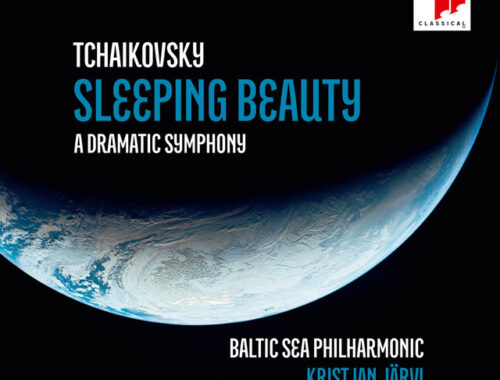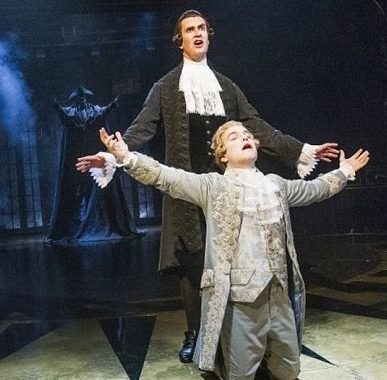GRAMOPHONE Review: Richard Rodney Bennett Orchestral Works Vol. 3 – BBC Scottish Symphony Orchestra/Wilson
 As each instalment of John Wilson’s recorded tribute to his friend and mentor Richard Rodney Bennett is revealed the realisation (to those of us who didn’t already know) that this extraordinarily complete musician could do absolutely anything becomes more and more apparent. This third volume showcases a piece dedicated to Wilson himself and might well be the reason I return to it again and again.
As each instalment of John Wilson’s recorded tribute to his friend and mentor Richard Rodney Bennett is revealed the realisation (to those of us who didn’t already know) that this extraordinarily complete musician could do absolutely anything becomes more and more apparent. This third volume showcases a piece dedicated to Wilson himself and might well be the reason I return to it again and again.
Reflections on a Sixteenth Century Tune is Bennett’s ‘Fantasia on a Theme of Thomas Tallis’ and was inspired by what Bennett called Wilson’s ‘way with strings’. In another universe altogether it’s what has always given the John Wilson Orchestra its stylistic lustre. Josquin des Prés may be a long way from Gershwin or Rodgers but Wilson knows instinctively what Bennett heard in the tune and how he wished to journey with it. The handful of variants seem to hover around an especially lovely Warlock-inspired section where Bennett pits a solo quartet against muted strings. It’s the most ‘composerly’ music imaginable and feels effortless, though Bennett insisted it wasn’t – and it’s beautifully played by the BBC Scottish Symphony Orchestra who clearly understand what it means to the conductor. The final ‘fade to black’ resonates long after the sound has disappeared.
Tucked in between the purely orchestral works is a revealing trio of settings for voice of three poems by Bennett’s sister Margaret (Meg) Ruth Peacocke entitled The History of the Thé Dansant. They are essentially three postcards from the edge – Two Foxtrots and a Tango might be the subtitle – suggestive of the physical and emotional ‘distance’ felt by the Bennett siblings towards their parents. We are in the realms of 1920s decadence (the images of travel calling to mind sleek ocean liners and perhaps even Bennett’s beloved Orient Express) and the composer’s way with classy pastiche underscores fanciful, almost Sitwellesque, texts which Sarah Connolly enjoys as much for the sound of the words as their meaning. The closing bars of the final setting unlock a ravishing and entirely unexpected horn-led postlude which is a classic instance of Bennett’s gift for the lyric creeping up on you and quietly breaking your heart.
The First Symphony – an LSO commission from 1965 – and Zodiac have much in common. The outer movements of the symphony – sinewy, bracing, and in the finale capricious – are like serial Walton. Meaning that it wears its serialism lightly. It’s music of great panache shot through (most especially in the climax of the first movement) with a hint of filmic melodrama. The slow movement is dedicated to Bennett’s soon to be long-term partner Dan Klein and is possessed of sighing lyricism and speaks of a soul newly romanced. It has a Bergian depth of expression and reach that is quintessentially Bennett. It could hardly sound more like a testament to true love.
Zodiac – an astrological showpiece dedicated to Elizabeth Lutyens – whisks us through the seasons and related star signs in a series of jewelled miniatures that behave like a concerto for orchestra. Nothing to do with horoscopes or Russell Grant but they shine brightly. Bennett’s own star sign, Aries, is unusually assertive. Now there’s a surprise.
You May Also Like

GRAMOPHONE: From Where I Sit – April 2019
24/04/2019
GRAMOPHONE Review: Sleeping Beauty – A Dramatic Symphony: Baltic Sea Philharmonic Orchestra/Järvi
27/01/2021

